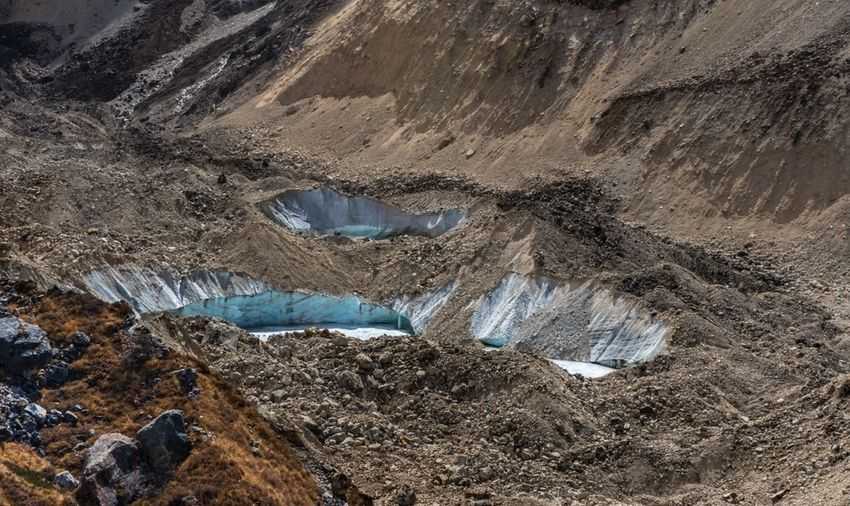Accueil>Call For Papers - "Back To Frozen Earth: Permafrost In Social Theory And Beyond Conference"

15.10.2024
Call For Papers - "Back To Frozen Earth: Permafrost In Social Theory And Beyond Conference"
Conference dates: 17-18 June 2025
Conference location: Sciences Po (Paris)
Submission: anastasiya.halauniova@sciencespo.fr
Submission deadline: November 15th, 2024
Results: End of January 2025
If permafrost could once be seen as a silent backdrop to human life, the current ecological crisis troubles that notion. In the context of ecological devastation, permafrost is gaining new visibility. Yet, contemporary discussions around permafrost tend to present it as an environmental threat first and foremost, privileging the view of permafrost as a force that accelerates climate change and disrupts sociomaterial worlds built on its surface. In the words of anthropologist Susan Alexandra Crate, “we all live on permafrost” (2021), but the permafrost we live on is storied as barely livable.
In response to this environmental urgency, social scientists and humanities scholars have finally turned their attention to permafrost, putting forward an idea that it is far more than a mere layer of frozen ground. Since permafrost has long been entwined with processes of environmental extraction and colonization (Chu, 2020), these scholars approached permafrost as an anthropogenic phenomenon not divided from the relations of power. More than that, these researchers have highlighted that permafrost possesses a unique ability to trouble dominant theoretical categories within social theory. As Charlotte Wrigley eloquently states, “permafrost breaks free of human categorizations” (2023) of life and nonlife, solidity and fluidity, stability and dynamism, offering a model case for theorizing environmental devastation beyond conventional dualisms. But even among those emerging attempts to build an ‘earthbound’ social theory, theoretical attention to permafrost is still scarce, and its unique lessons for social theory remain unaddressed.
Building on these insights, this conference explores the implications of thinking about, with, and through frozen earth. If we ‘come back’ to frozen earth, what novel understandings of the world might emerge? And what would a permafrost-bound social theory look like? In addressing these and other questions, contributors from different disciplines (sociology, anthropology, history, geography, political science, cultural and media studies) and backgrounds (arts and activism) are invited to explore practices and imaginaries related to frozen earth in various historical and geographical contexts. Possible topics might include but are not limited to:
- scientific practices of defining and negotiating the significance of frozen earth;
- the role of monitoring, mapping, and remote sensing in governing frozen earth;
- frozen earth in extractive economies;
- Indigenous and decolonial cosmologies of frozen earth;
- frozen earth in the discourses of health and pollution;
- frozen earth, land, and territory;
- material politics of permafrost engineering;
- politics of conservation and preservation of frozen earth;
- environmental injustice, reparations, and frozen earth;
- aesthetic visions of frozen earth.
Selected participants will also be invited to submit papers for publication of an edited volume on the topic. More information will be provided at the conference.
Submission:
Please submit abstracts (max. 300 words) and a short biographical note as a single PDF or Word document to anastasiya.halauniova@sciencespo.fr by November 15th, 2024. Artistic interventions and poster presentations are also welcome! The results of the application process will be announced by the end of January 2025.
Conference participation requires no registration fee, and lunches and one dinner will be provided for participants free of charge. However, the organizing committee cannot cover participants’ travel costs and accommodation. But they will attempt to secure additional funding for those in need of financial support.
Organizing committee:
- Anastasiya Halauniova (Sciences Po – Centre de sociologie des organisations)
- Daniella McCahey (Texas Tech University)
- Alina Bykova (Stanford University)
- Susanna Gartler (University of Vienna)
Partners:
This event is financed by The Transatlantic Research Partnership and supported by the Bruno Latour Fund “Un nouveau climat pour les sciences sociales” de l'Institut pour les Transformations Environnementales de Sciences Po."